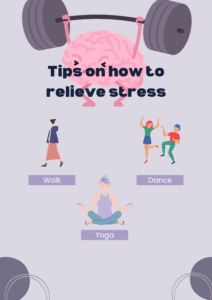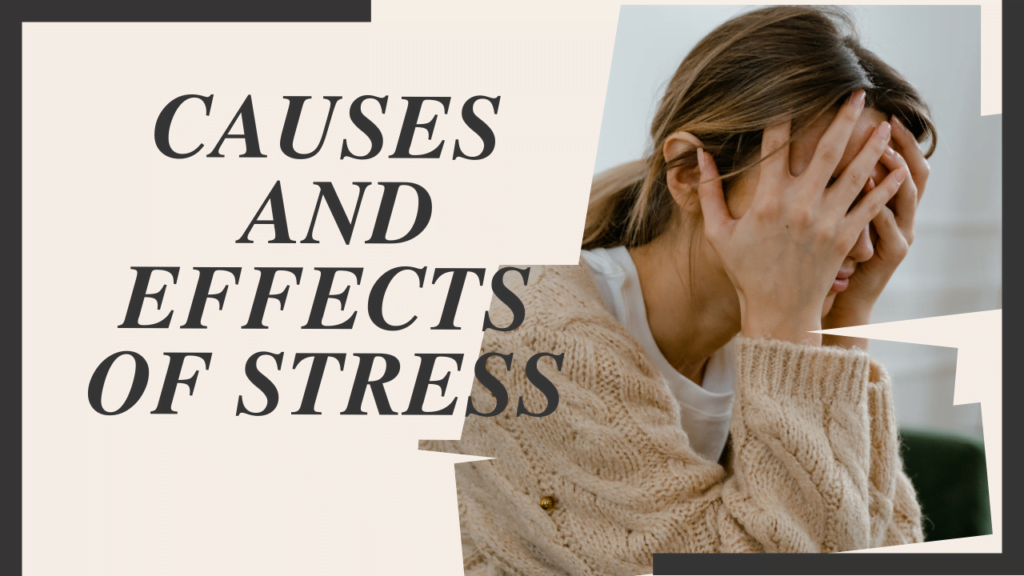The impacts of stress on health are hazardous and detrimental, influencing both our mind and body. Stress is our body’s normal reaction to any pressure or difficulty that seriously impacts health. Stressors are several types of stimuli that might cause it to happen. They can be psychological, emotional, or physical. Stress can take on positive and negative forms and is an inevitable component of daily existence. For instance, stress can spur people to work hard and fulfill deadlines, but when it persists or gets out of control, it can also lead to health issues, anxiety, and distress.
What gives rise to stress?
Numerous things might lead to stress, such as the following:
1. Stressors associated with work
Certain situations, like unemployment or unstable employment, heavy workloads and pressed deadlines, and disagreements with co-workers or managers, often lead to stress.

2. Financial Stressors
Financial issues like a shortage of money to cover necessities, instability, debt, and unexpected bills also cause stress.
3. Stressors in Personality and Relationships
Family disputes and interpersonal problems, a breakup, or divorce are also causes of stress.
4. Stressors connected to health
Health issues like persistent diseases or injuries, problems with mental health, and the inability to obtain healthcare give rise to stress and depression.
5. Environmental Stressors
Pollution, noise, packed quarters, and inadequate living surroundings give rise to stress.
6. Life Events and Changes
Relocating to a new location and significant life changes, including getting married, having a child, retiring, and passing away a loved one, can cause stress.
7. Stressors Related to Psychology
Low self-esteem, perfectionism, and unrealistic expectations can also lead to stress.
What are the impacts of stress on the body?
Stress has many short-term and long-term impacts on the mind and body.
1. The Physical Impact
Stress has strained effects on the whole body. It disturbs the proper functioning of different systems and processes of the body, such as the cardiovascular, muscular, respiratory, endocrine, immune, and digestive.
2. Emotional and Mental Impacts
Depression, anxiety, mood fluctuations, irritability, poor focusing and judging, and memory issues are often the impacts of stress.
3. Behavioural Impact
Modifications in appetite, Problems with sleep, such as insomnia, a rise in the usage of drugs, alcohol, and tobacco, isolation, and social disengagement, are also impacts of stress.
Read more: How to Improve Mental Health
How stress can be managed
Stress management and reduction require a multifaceted approach. There are many ways to control stress. Here are a few efficient methods for reducing stress:

1. Exercise Frequently
Regular exercise, walking, and other physical activities reduce the symptoms of stress. Physical activities release endorphins, which are endogenous stress relievers. Try to get in at least 30 minutes of moderate activity on most days of the week.
2. Engage in Mindfulness and Relaxation Practices
Progressive muscular relaxation, deep breathing exercises, yoga, and meditation are all equally important in mental calmness.

3. Keep Up a Healthy Lifestyle
A healthy lifestyle with a balanced diet including fruits, vegetables, lean meats, and whole grains removes stress. Furthermore, avoid excessive sugar and caffeine, as they might worsen the stress condition.
4. Get adequate sleep
Proper sleep—seven to nine hours every night—creates a peaceful resting environment that relieves stress symptoms.
5. Create Robust Social Networks
Spending time with loved ones and joining support groups and social media reduces stress. In addition to these qualities, be kind and loving to others.
6. Effective Time Management
Effective time management cures stress. Always set reasonable objectives and prioritize your work. Don’t procrastinate; instead, break things down into small steps.
7. Take Part in Hobbies and Leisure Activities
Set aside time for enjoyable and stress-relieving activities. Engaging in creative activities like writing, painting, or music listening can be healing.


